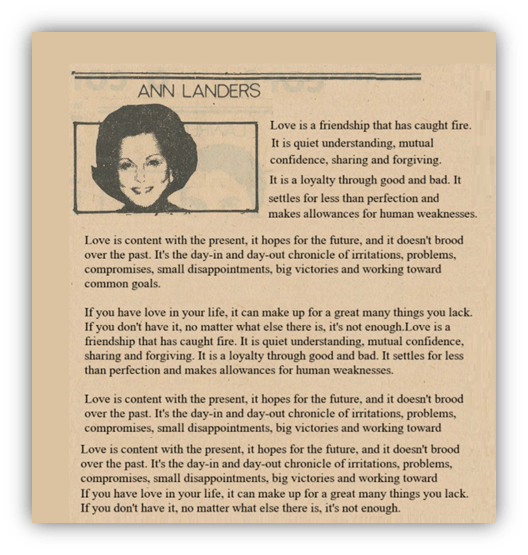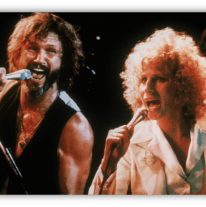A high school equation that won’t work – and the gift that often does
This week begins my 15th academic year as a school counselor.
My first was the 2011-12 school year.
In truth, I’ve been working for several weeks already as part of our school’s scheduling team, learning a new information system.
Thank goodness that only happens about once a decade – and making sure 2,700 students have eight classes they requested back in the spring.

(Despite our best efforts, we will be having conversations with students who want to make changes. Sometimes, the changes happen. Most often, they don’t. We try hard to be transparent and compassionate.)
As I think about what I learned in my master’s program in counselor education, I realize the one thing I don’t recall hearing – and what I wish I’d heard – was this:
Students are not the only people we serve. As a school counselor, we would be foolish to ignore their parents.
As awesome as our young people are…
… they are minors or, at most, young adults.
School counselors know we must involve parents in our plans to support our students, and we try a variety of ways to engage, respond and communicate with them our plans, goals and concerns.
When I talk with parents, I approach them as partners in a support team, not as clients.
In addition, I tend to refrain from advice unless directly asked. As I’ve mentioned before, I bristle at the term “guidance counselor” and find the most effective role in counseling to be that of supportive, active listener and facilitator of the student’s expressed desires.
Still…
Let’s say we’re at a party.

Someone says, “What one thing do you think would be most helpful for today’s young people?”
Or: “As a parent, how can I best support my student?”
I would say:
“Banish the ‘happiness equation.’”
What’s that?

The idea that the combination of the right courses + straight A’s = My dream school = My dream job = Lots of money = Success = Happiness.
I work at a highly competitive high school, so it’s possible that I encounter this mindset more than my colleagues in other environments. Still, I think it’s present to a certain degree everywhere. In the 21st century, it feels inescapable.
It’s also unrealistic and flawed.

And the relentless pursuit of it leads to young people who burn themselves out before they set foot on a college campus.
….Often anxious, depressed or both – and wondering what they did wrong.
Let’s start from the conclusion. Regardless of party affiliation, anyone can see that our commander-in-chief has lots of money and, in a political sense at least, success. Does he strike you as happy?
I’ve never gotten that vibe from him.

Aside from 45/47, all one has to do is look at the lives of various entertainers, athletes and other folks with income of six or more figures – and look at the cautionary tales of overdoses, fatal accidents, even suicides.
The Beatles sang, “Money can’t buy me love.” It can’t buy happiness, either.
Sure, it’s true that a certain amount of money is necessary to meet the material necessities of living in modern society. But trying to put an exact dollar figure on what will make one happy is a fruitless task.

And the whole notion of “dream schools” is something that only lines the pockets of the establishments themselves.
The truth is, any campus can be the right one for students who have a particular vision for themselves – or even a personality flexible enough to learn whatever seems interesting and satisfying to them.
And not every job requires education beyond high school or a certificate in a particular trade.
So, can we back all the way to the start of the equation?
One does not have to have a certain set of courses and straight A’s to be successful or happy.
What traits are essential?
- Curiosity.
- Compassion.
- Empathy.
- Integrity.
- Engagement with people, ideas and experiences.
- Honesty.
- Flexibility.
- If at all possible, a sense of humor to cope with the challenges of life.
These will help adolescents more than any “happiness equation.”
On the bulletin board in my home office is a quote from a decades-old Ann Landers column.

I remember coming across it as a high school senior and being wowed by its truth:
“Love is a friendship that has caught fire. It is quiet understanding, mutual confidence, sharing and forgiving. It is a loyalty through good and bad. It settles for less than perfection and makes allowances for human weaknesses.
Love is content with the present, it hopes for the future, and it doesn’t brood over the past. It’s the day-in and day-out chronicle of irritations, problems, compromises, small disappointments, big victories and working toward common goals.
If you have love in your life, it can make up for a great many things you lack. If you don’t have it, no matter what else there is, it’s not enough.”
I come back to that quote often – not only as a reminder in my own life but when I think about broader contexts – love of family, of community, of nation – indeed, love of life.
At that party, if the vibe were right…

…say, the evening is winding down and we’re wrapping up the conversation…
I’d like to think I’d say some variation of this:
“If your child feels loved, and knows that wherever they go in life, they can count on your love, you’ve given them the best gift you can to build a life that’s successful by their own definition.”
Isn’t that what any of us wants?








I accidentally left “compassion” and “empathy” off my list of values I consider essential. (Blame scheduling fatigue!) They’re at least as important as any of the others.
{That was your layout editor’s omission- fixed.}
How true it is, Chuck. Keeping a balance is so important. Working hard in school is so valuable (as is working hard in anything in life), but working yourself to a frenzy isn’t worth anything. I hope that little by little you’re able to interject your philosophy into conversations with students/parents.
My children’s post-high school education certainly hasn’t gone as I expected. I finished high school, went to college, graduated in four years with my bachelors and got into my career that I’m still in 30+ years later. But my kids’ college experiences have been good and bad with stops and starts, (and very late starts)…but you know what? It doesn’t matter. Life goes on, and they are good people figuring out what works for them.
Thank you for sharing this.
I transferred from one college to another and I’m glad I did — or I wouldn’t have met my wife — but had I stayed at the first one, I don’t think it would have made any difference to my professional life. Young people often think that their careers are going to be straight paths to better positions up the ladder, but reality isn’t straight at all. Paths are crooked, and careers change directions as opportunities offer themselves.
This is easy to see in retrospect, and so is looking back after recently retiring and realizing that my core memories have little to do with my jobs. They’re more about relationships, travel, and music. You know, things I love. And I loved a lot of my work, but it’s not nearly as important and we’re led to think.
Keep doing what you’re doing, Chuck. It’s all about the love.
Thank you, Chuck for this reflection. My daughter just began her junior year, so we are right in the thick of all of this, and I’m nodding my head at so much of this as I read it. And you are right in that it’s pretty pervasive across the board. Her high school has everything from McMansions to trailer parks and everything in between in its boundaries, but the culture you described is ever present. We have tried to emphasize and affirm what we feel are the important qualities in life, such as the ones on your list. I see her becoming these things more and more as she gets older, and I am encouraged. Right along side of it, the pressures you mentioned are always looming, both for her and for us as parents. Like you said, the important thing for me as a parent is to love and support her along the journey so she knows she is not alone, and that love is unconditional.
I love the Beatles quote you referenced and can’t help thinking that young people today will sadly be more familiar with the Ariana Grande chart-topper “7 Rings” that conveys the opposite-
Whoever said money can’t solve your problems
Must not have had enough money to solve ’em
They say, “Which one?”, I say, “Nah, I want all of ’em”
Happiness is the same price as red-bottoms
Blech!
I forgot to mention that I love how mt was immediately there with a picture of sad Trump, right on cue.
I whole-heartedly agree with this. I saw so many students “succeed” who were miserably unhappy. I saw more than a few who looked as though they were on the track to success, only to be de-railed by substance abuse issues, mental health issues, and twice, tragically by suicide. It’s not worth it. It’s never worth it.
This is generally good advice, but not great for those wanting to go on to advanced degrees. It most definitely matters where you went to undergrad for getting into law schools, med schools, and phd programs. The school you go to will also determine your access to research labs of scientists as an undergrad. Working with a respected researcher from UMich (I went to Law School here) or Harvard is much better than someone who does a paper every few years from a small school.
Then there are schools that offer accelerated access to professional programs. Like Union College (I was an undergrad here) and Albany Medical School have a 7-year medical degree program where students do their 4 years worth of undergrad courses in 3 years and automatically get accepted to Albany Med if their grades met the threshold.
I don’t disagree with what you’ve said. This was aimed more at the parents, not the students. If a student has a clear vision in mind of where they want to go and what they want to do, I will support them 100%. But too many students get way more pressure than they need from well-meaning people.
I understand. But parents might be interested in paying for only 3 years of undergrad instead of four if they have a kid who wants to be a doctor. Union College is super expensive.
Even with that dream schools list, cost is still an issue. My girlfriend at the time and I both rejected our NYU offers for Michigan to get lower costs of attending and much lower costs of living.
Another great article, Chuck. Very insightful. Although I’ve got to be honest, the biggest shock to me was learning that the University of Michigan is in the top 10 “dream schools” for both students and parents nowadays. I never would’ve guessed that placement at all.